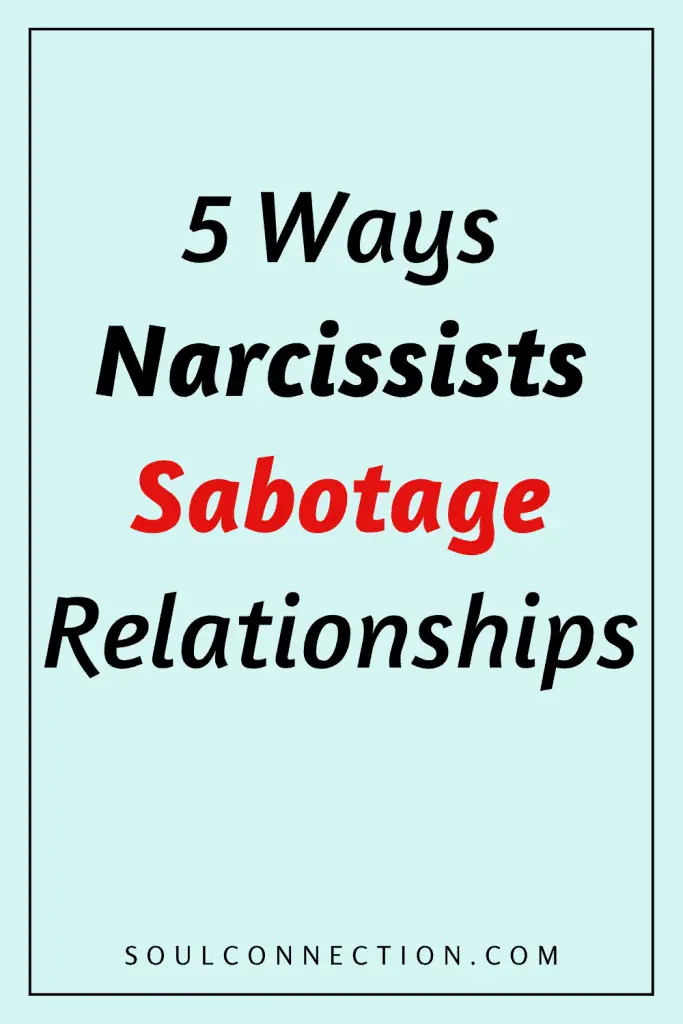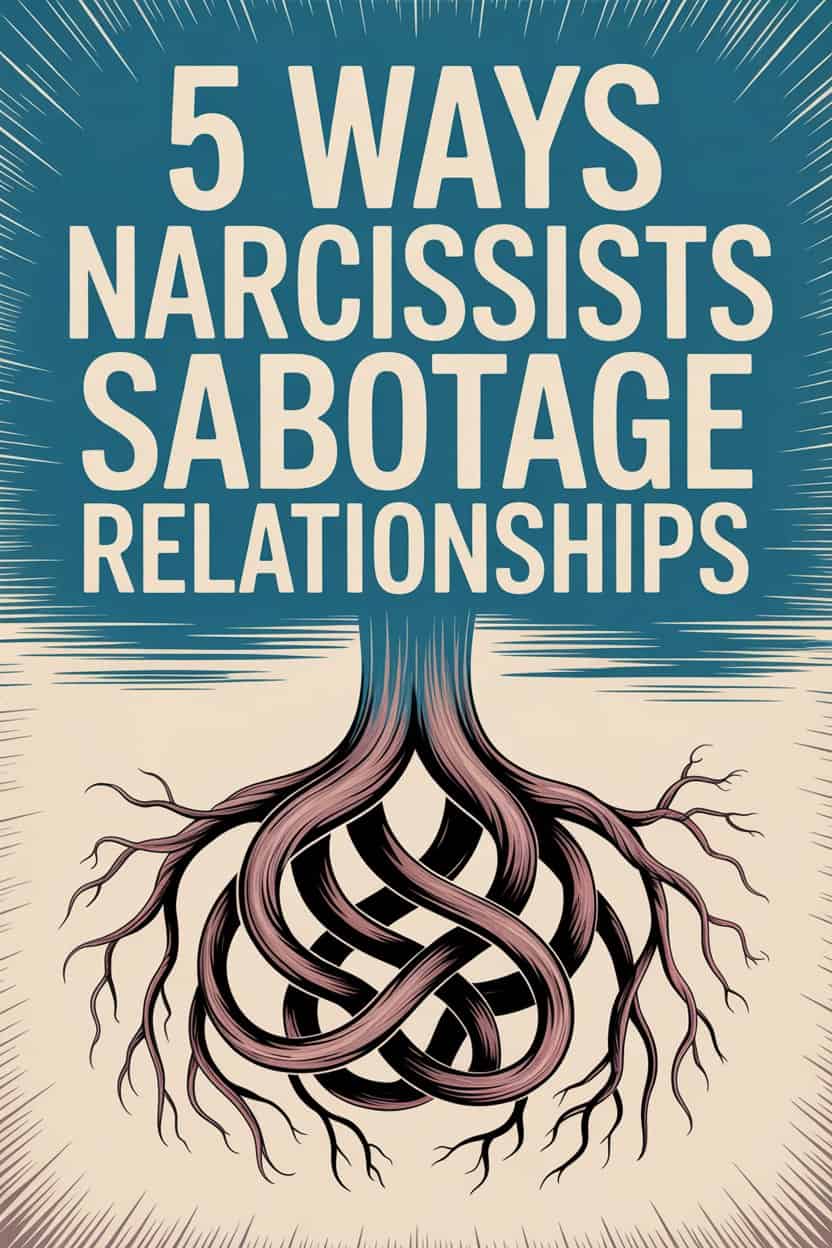Ah, love. That magical, sometimes maddening adventure where two people bring out the best—and, on a bad day, the worst—in each other.
Now, toss a narcissist into the mix, and suddenly your romantic comedy takes a sharp turn into psychological thriller territory. If you’ve ever felt like you were dating someone who could gaslight a lightbulb, this is for you.
Let’s untangle the five classic ways narcissists turn healthy partnerships into emotional obstacle courses. And yes, there’s hope if you’re stuck on the rollercoaster right now.
1. Emotional Manipulation and Gaslighting
Narcissists have a knack for rewriting reality. Small disagreements become epic battles over whether the sky is, in fact, blue.
You remember saying something? They insist you didn’t. They forget your birthday—but somehow it’s your fault? Classic.
Gaslighting isn’t just pop-psychology jargon. It’s the narcissist’s favourite party trick, and it works by making you doubt your own thoughts, memories, and even your sanity.
Bit by bit, you start second-guessing everything from your taste in shoes to your take on last Thursday’s argument.
How does this sabotage the relationship? Simple. When you’re constantly on the defence, trying to keep up with shifting goal posts, intimacy and trust evaporate.
Your confidence crumbles. With each round of manipulation, you lose a little more of yourself.
What to do if you’re caught in the fog: Get your reality checks from outside the relationship. Friends, journals, and even your pet goldfish will give you a more honest reflection.
If you find yourself rewriting your own memories to fit someone else’s narrative, that’s not love—it’s manipulation.
2. The Need for Constant Admiration
Narcissists don’t need a partner; they need an audience. Imagine living with someone who treats every dinner like Oscar night and expects a standing ovation for loading the dishwasher.
Hungry for praise, they will drain your emotional pantry and still complain they’re starving.
This relentless need for validation means your feelings never quite make it onto the agenda.
Celebrate a win at work? Suddenly, they had a bigger one last week. Feeling low? Sorry, their day was worse, so take a number.
All this leaves you feeling invisible, like a supporting actor in your own life. Over time, resentment builds—and connection erodes.
It’s rough trying to nurture romance when every conversation circles back to how amazing they are.
Practical tip: Try shifting the spotlight away, even briefly. Notice who gets uncomfortable.
If you can’t share even the smallest of joys without being upstaged, you’re probably not the star of this relationship. Ask yourself: “Am I allowed to be happy, or just the applause track?”
3. Lack of Empathy
Forget warm fuzzies and heartfelt apologies. With a narcissist, emotional support is as rare as a sunny British summer.
Your pain, joy, or even just your mildly interesting anecdote is met with a blank stare or, worse, redirected to their own experience.
This absence of empathy isn’t just garden-variety selfishness. Narcissists can’t—or won’t—put themselves in your shoes. If you’re ill, it’s inconvenient for them. If you’re happy, they get jealous.
And when you’re hurting, their sympathy extends about as far as a used tissue.
Relationships thrive on empathy. Without it, you’re left running on empty, trying to care for someone who treats your feelings as background noise.
How to cope: Watch for consistent patterns. Everyone’s self-absorbed once in a while, but if you’re always giving emotional first aid and never getting any, it’s time for a rethink.
Try stating your feelings clearly and see what happens. If you’re met with a shrug or a monologue about their own struggles, you have your answer.
4. Sabotaging Your Support Systems
That friend you love? Suddenly, your partner finds them “toxic” or “jealous.” Family dinners get skipped, group chats mysteriously go unanswered, and your circle starts shrinking faster than your favourite jeans after Christmas.
Narcissists often isolate their partners, not by brute force, but through subtle digs and engineered drama. “I just want us to have more alone time,” they’ll say, while quietly kneecapping every relationship that isn’t about them.
The strategy is simple: with your support system gone, you’re easier to control. And if you ever question their behaviour, you’ll have no one left to turn to but… them.
Diabolical? Yes. Effective? Unfortunately.
Spotting isolation: Take stock of your connections.
Are you skipping social events more often? Do you feel guilty for wanting to see family or friends? Are you making excuses for your partner’s rudeness?
That’s not love—it’s a red flag parade.
What now? Make time for people who love you. Send that text, make that call, show up anyway. You deserve relationships outside your romantic one.
Yes, even if it “upsets” someone who thrives on keeping you all to themselves.
5. Playing the Victim
When all else fails, the narcissist dons the cloak of martyrdom. Suddenly, every disagreement is a personal attack; every boundary you set is cruelty; every time you say “no,” you’re the villain in their one-man soap opera.
This endless victim routine is designed to keep you tangled in guilt. After all, how dare you have needs when their suffering is so… dramatic?
Instead of addressing real issues, conversations spiral into lectures about how hard their life is (especially since meeting you).
Playing the victim sabotages relationships by hijacking accountability. Problems never get solved because the narcissist is always too “wounded” to hear feedback. It’s exhausting—and nothing ever changes.
How to break the cycle: Refuse to play the rescuer. Say what you mean, set a boundary, and stand firm—even when the waterworks start.
Take note of patterns: do your needs always get brushed aside in favour of their endless misfortunes? If yes, step away from guilt and reclaim your role as an equal partner.
Love Isn’t Supposed to Feel Like a Job Interview
Here’s the thing: relationships are supposed to be partnerships, not performances. If you recognise these sabotage tactics, it doesn’t mean you’re weak or naïve; it means you care. That’s your superpower.
Boundaries aren’t selfish—they’re essential. Make your needs known, keep your circle strong, and don’t be afraid to press pause on the applause for long enough to hear your own voice again.
Love shouldn’t leave you exhausted or questioning your worthiness. If you’re finding it hard to remember what “normal” feels like, that’s your sign.
There’s nothing noble about losing yourself for someone who never really sees you.
You’re allowed to take up space, to feel joy, to demand empathy, and to expect the same respect you give. And if that’s too much for your partner?
Well, there are plenty of people out there who would be thrilled to hear about your day—and they won’t expect you to clap.
You’ve got this. Even if it means reclaiming your life, one boundary at a time.


